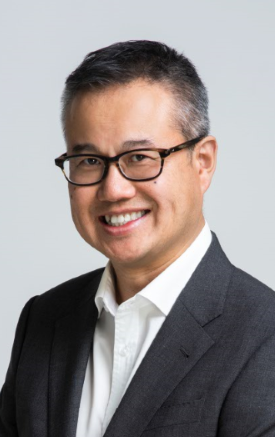
Keywords
Biography
Melvin Chin is a clinical academic medical oncologist – he cares for patients with lung, melanoma, gastrointestinal and other cancers and he teaches UNSW medical students. He was the Head of Department-Medical Oncology at the Prince of Wales Hospital from 2015-2018. He is the chair of the South-Eastern Sydney Local Health District Human Research Ethics Committee. He has contributed to numerous clinical trials and health services research...view more
Melvin Chin is a clinical academic medical oncologist – he cares for patients with lung, melanoma, gastrointestinal and other cancers and he teaches UNSW medical students. He was the Head of Department-Medical Oncology at the Prince of Wales Hospital from 2015-2018. He is the chair of the South-Eastern Sydney Local Health District Human Research Ethics Committee. He has contributed to numerous clinical trials and health services research studies and continues to nurture new research collaborations.
My Grants
Cancer Institute NSW- Innovations in Cancer Control Grant- Priority 4 Building on Innovations in Cancer Care, 2018- Co-investigator - Sharing follow-up care for patients with colorectal cancer
Cancer Australia Supporting People With Cancer Grant 2019 - Co-investigator- Co-designing patient engagement strategies to enhance safety in cancer services for culturally and linguistically diverse patients
National Health and Medical Research Council Ideas Grant 2019- Chief Investigator H - Enhancing safety and care quality for culturally and linguistically diverse cancer consumers: A consumer engagement approach.
My Qualifications
BSc(Med), MB BS, MHM, CHM, AFCHSM, FRACP
My Awards
-
Cancer Institute NSW- Translational Cancer Research Network - Cancer Challenge of the Year 2015- Co-investigator
-
East Coast Medical Network- Basic Physician Trainee Mentoring & Support Award, 2018
-
NSW Premier's Awards for Outstanding Cancer Research- Improving Equitable Outcomes through Cancer Research 2023 - Co-investigator
-
East Coast Medical Network- Outstanding Presenter (as voted by basic physician trainees in 2024, in recognition of exceptional contributions to the BPT written exam program), 2024
-
Randwick Clinical Campus, School of Clinical Medicine, UNSW Medicine & Health- The Bryan Yeo Best Teacher Award- Consultant, 2025
My Research Activities
- Sub-Investigator on the phase I BRF112680 study- the first-in-human trial of dabrafenib. The first patients were enrolled at the GSK Medicines Research Unit, Prince of Wales Hospital. Principal investigator of the BRF114144 rollover study.
- Local principal investigator of ERAS-254-01 (Naporafenib) at Prince of Wales Hospital.
- Sub-investigator in clinical trials that have included ipilimumab (CA184095), osimertinib (AURA, AURA3), brigatinib (ALTA) durvalumab (ARCTIC) and AGEN1884 at the Prince of Wales and St George Hospitals and Scientia Clinical Research.
- Co-investigator on the Cancer Shared Care project. The project looks at using an electronic care plan in a shared care model to support GPs and hospital cancer specialists looking after patients who have completed cancer treatment.
- Co-investigator on CanEngage: Co-designing patient engagement strategies to enhance safety in cancer services for culturally and linguistically diverse (CALD) patients
- Supervisor: Independent Learning Project (UNSW Medicine).
- Recent completed studies include:
- real world survival outcomes of new therapeutics in lung cancer
- a qualitative study of cancer patients and clinicians on using telemedicine in the context of Covid-19
- an audit of prisoners with cancer in NSW
- a comparison of data quality between cancer clinical and research databases
- the use of compassionate access drugs to treat cancer
- the use of Theoretical Domains Framework Implementation to increase the identification and referral of patients at risk of Lynch Syndrome
- mapping patient journeys to a literary model of fictional heroic journeys
- using qualitative data examined from relationships between patients, GPs and specialists to inform the design of a sustainable model of GP follow up for patients completing cancer treatments